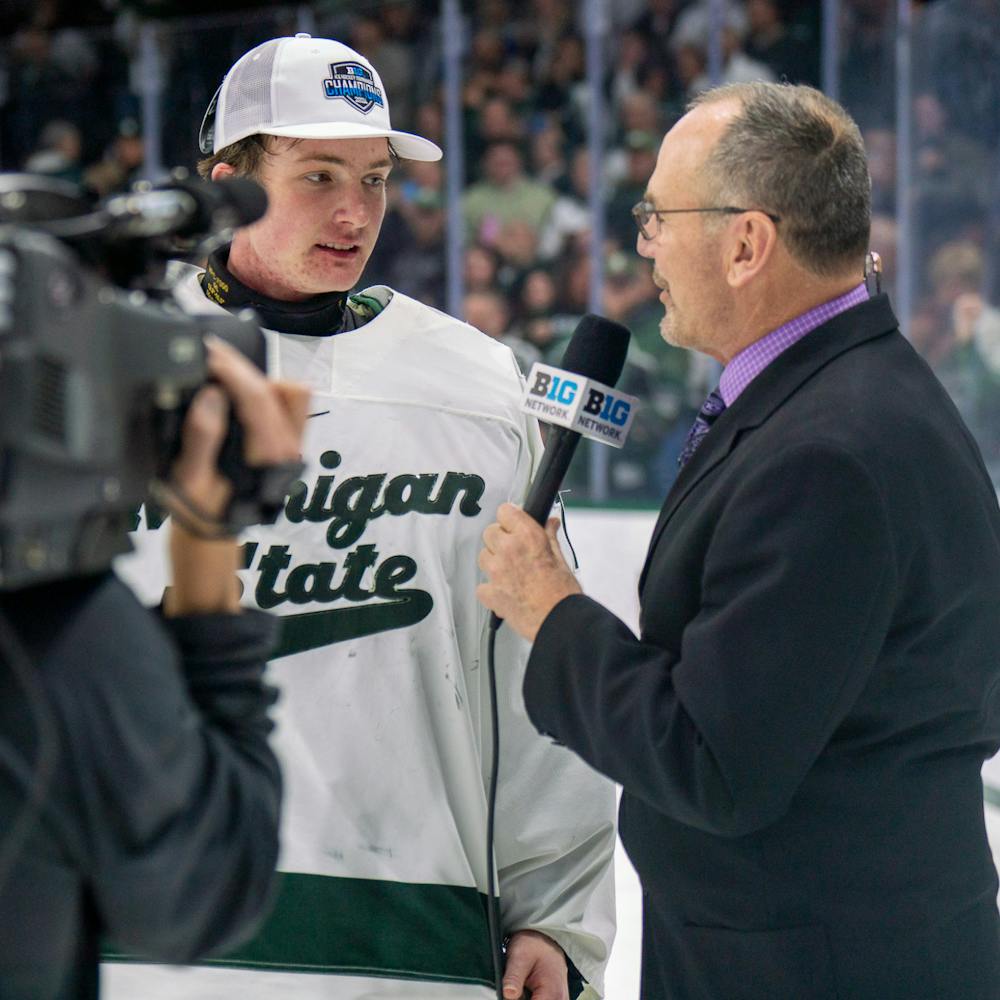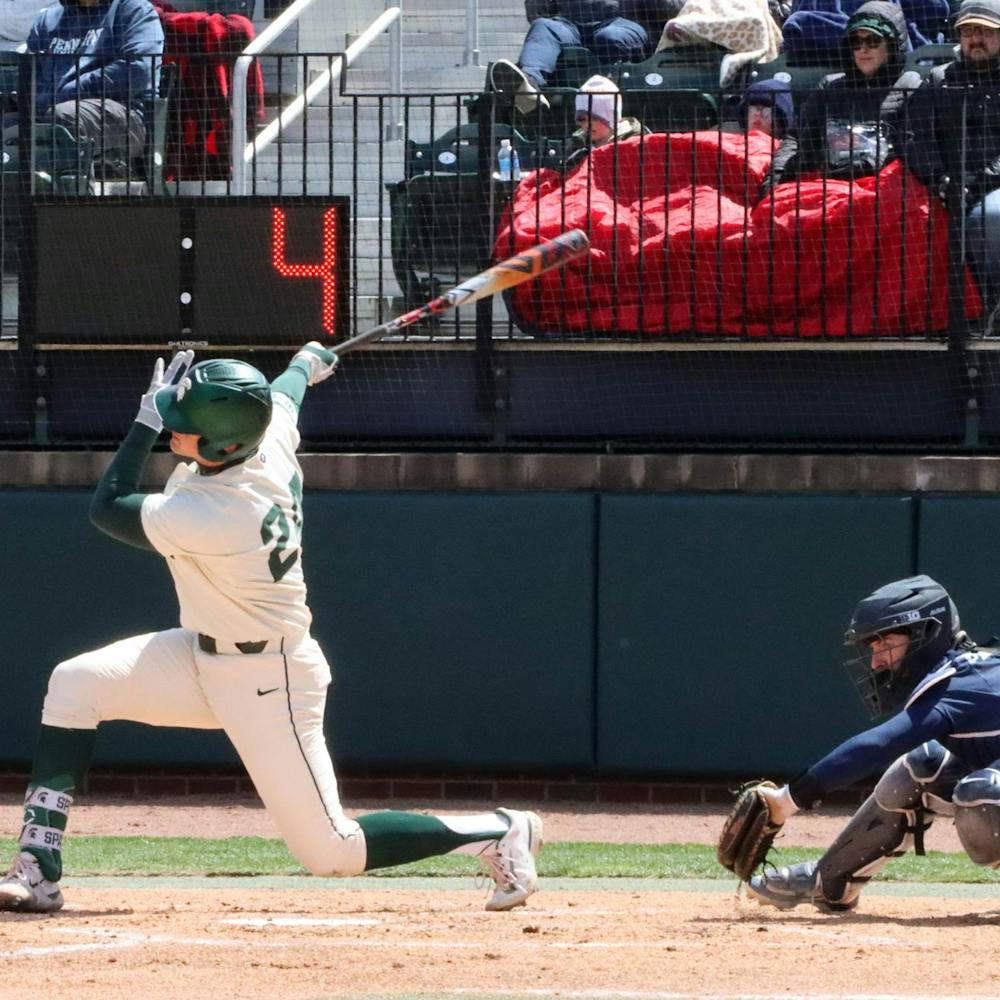National Public Radio science correspondent Ira Flatow believes “if it bleeds, it leads” is one of the mantras of news organizations.
But he also thinks science stories should rank as high as crime stories in the media when it comes to creating public interest.
“Science has been rescued,” Flatow said. “Genetic engineering has brought science back into the news.
“If it breeds, it leads.”
Flatow, the science anchor of “Talk of the Nation Science Friday,” spoke to more than 100 people Wednesday night in the Fairchild Theatre. His presentation, “If It Breeds It Leads: How the Media Bring Science to the Public,” was the final installment of the McPherson Professorship, a series of lectures funded by a $2 million anonymous donation.
MSU President M. Peter McPherson and his wife, Joanne, decided the money should be used to help students better understand science.
The lecture series is also tied in with Natural Science 491, Science Changing Society, a course offered to all undergraduate students at MSU. Visiting lecturers address the public and give a lecture to the class the next day.
Flatow had some serious competition for students’ time Wednesday night - the men’s basketball team was defeating Florida across campus - but many still braved the cold and snow to hear the NPR journalist.
“I really admire Ira Flatow, so to have the opportunity to hear him in person is really exciting,” said Kathy Doig, the director of the medical technology program at MSU. “I could be home watching the Spartans play, but hey, that’s what tape machines are for.”
Electrical engineering freshman Kristen Pregitzer was spurred to the speech by the enticement of extra credit from her Integrative Studies in Social Science class. But she said even though the speech was a class assignment, she was interested in what Flatow had to say.
“This is different from anything I would learn in any class even if it was science related,” Pregitzer said.
Flatow said the public has a natural interest in science and the way things work, but he thinks it’s unfortunate science and technology-related stories often take a back seat to other news stories.
“Unfortunately people are now more concerned with money and profit,” Flatow said. “News directors think more people are going to tune into crime than scientific news.”
But Flatow has ideas for attracting more focus to the world of science, including creating a science cable channel.
“If we are going to get more science news into the world we have to take matters into our own hands,” he said, discounting the Discovery Channel as “old BBC reruns.”
“We have science fiction channels but no science channels.”
He said science should be presented in an arena where it is more accessible to the public.
“We need to plant the flag of science where our children can see it every day,” Flatow said. “They need to know that it is just as exciting as anything else on TV.”
Flatow, who has appeared on many television news programs to talk about scientific issues, also addressed the misconceptions of what the public expects from science.
He has been asked more than once to wear a long white lab coat on TV because that’s what producers think audiences expect from a scientist.
“The most frustrating part of my job is trying to explain to people what it is that I do,” Flatow said. “And then I have to justify it.”
Heather Banks can be reached at bankshe1@msu.edu.



